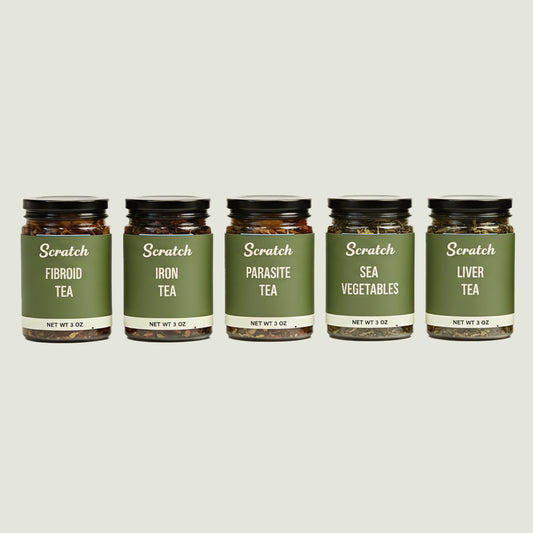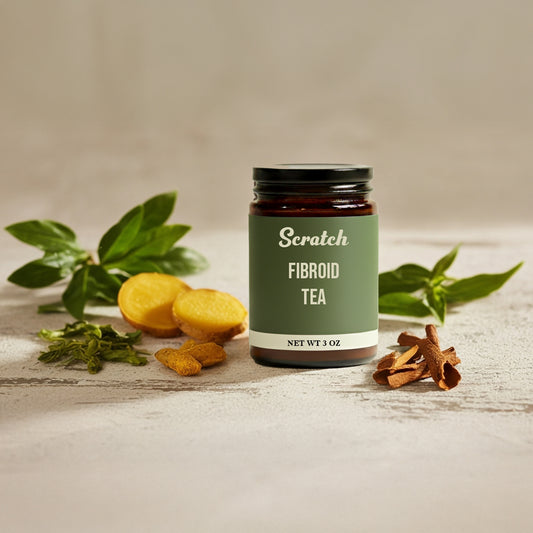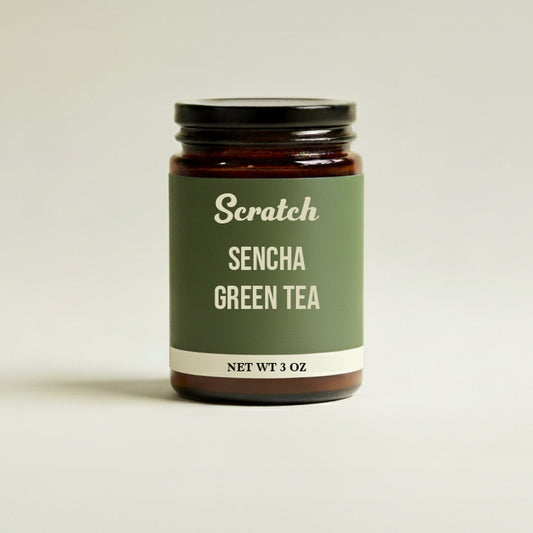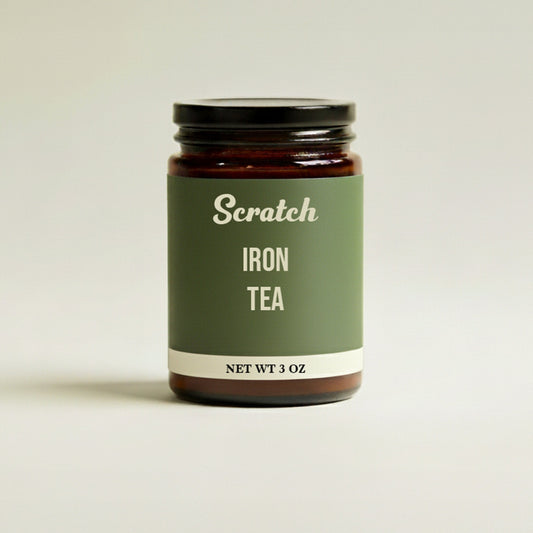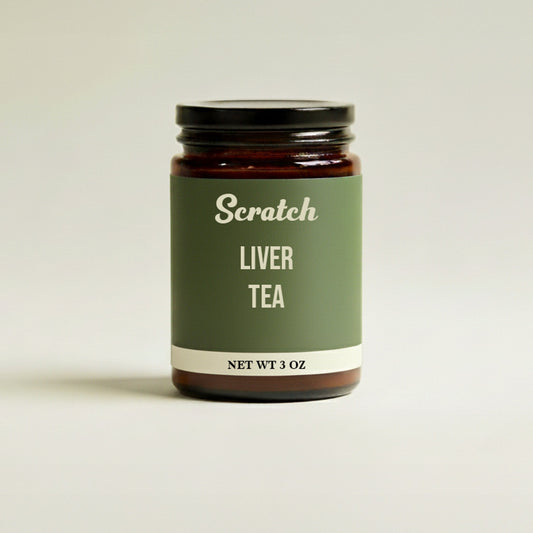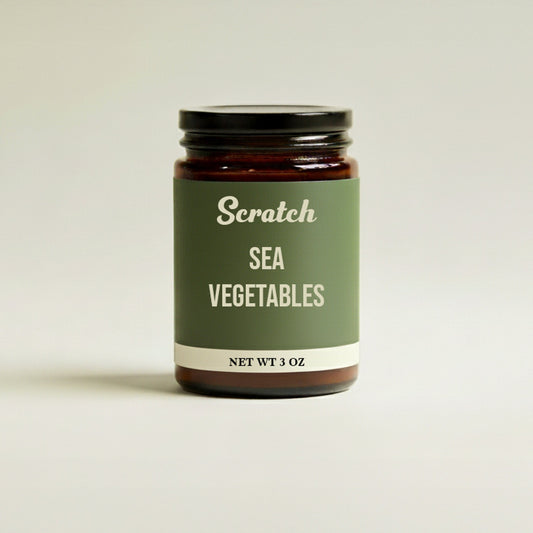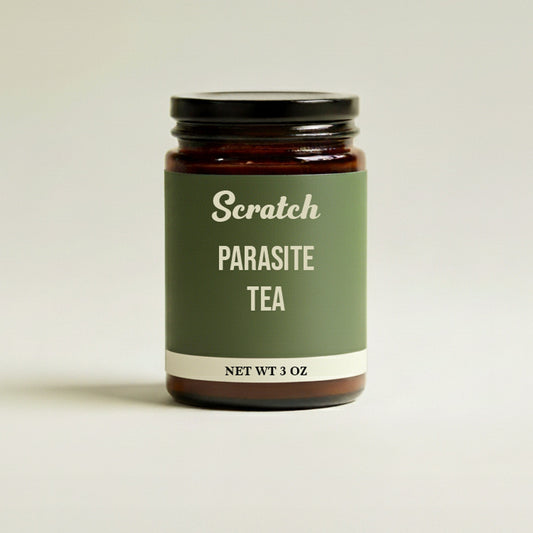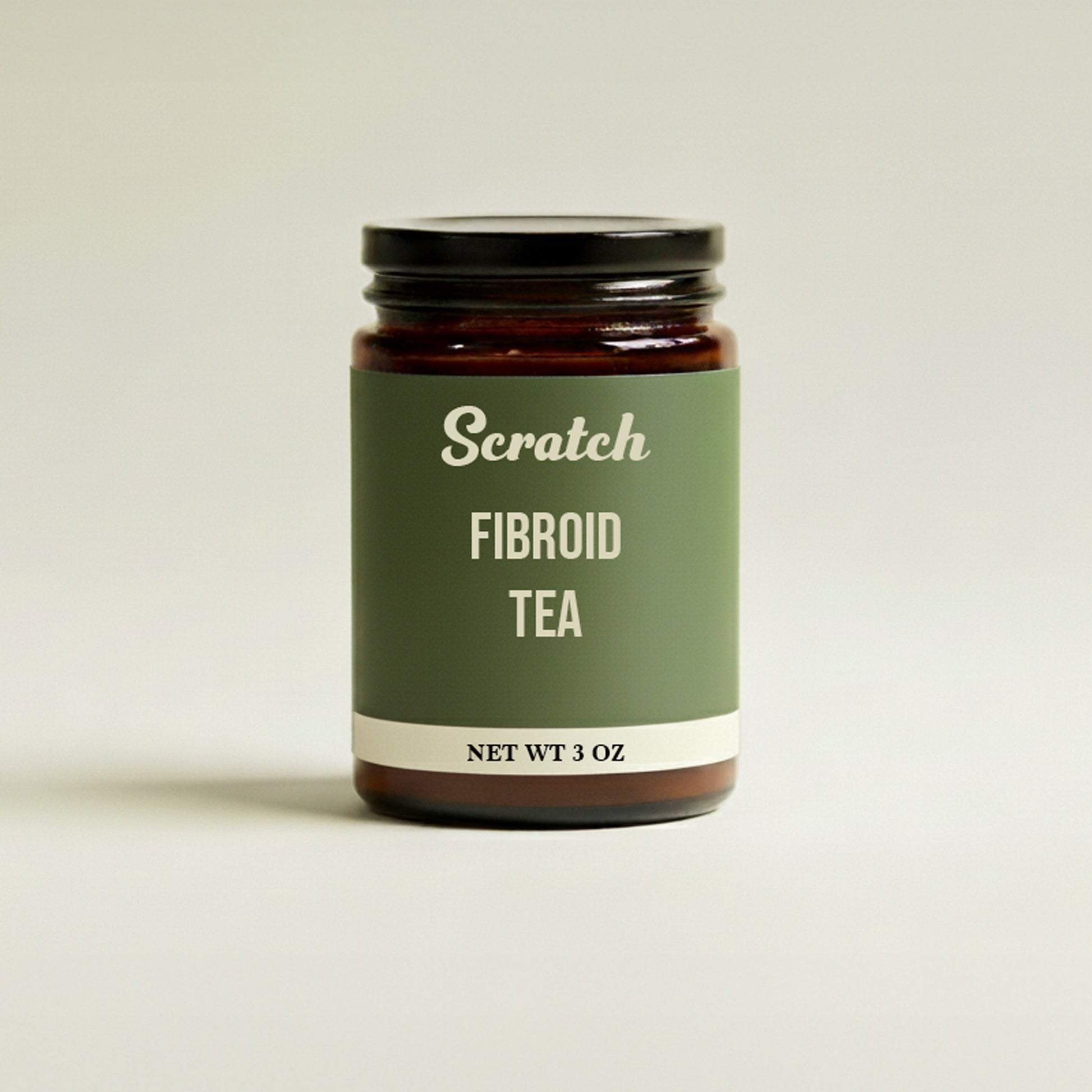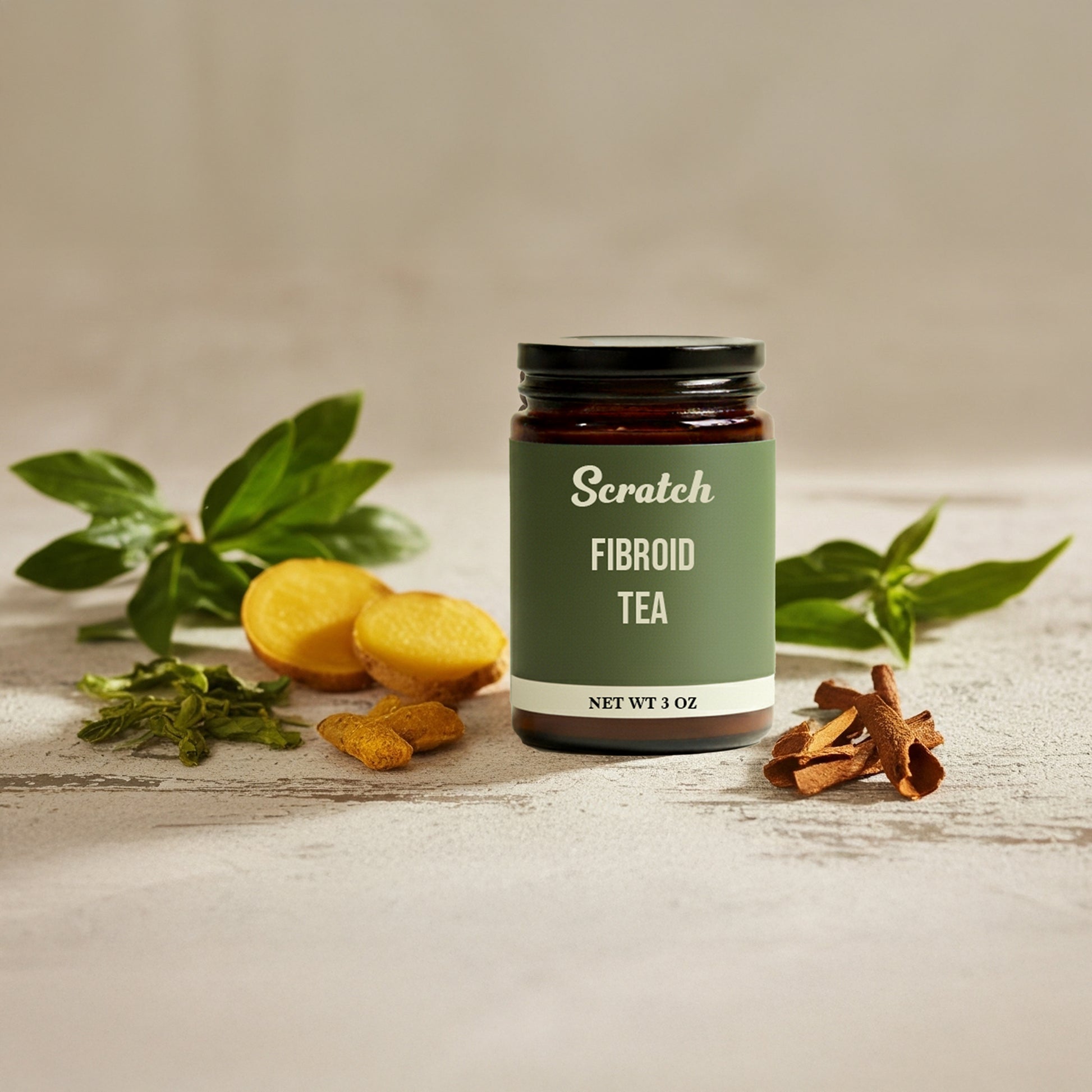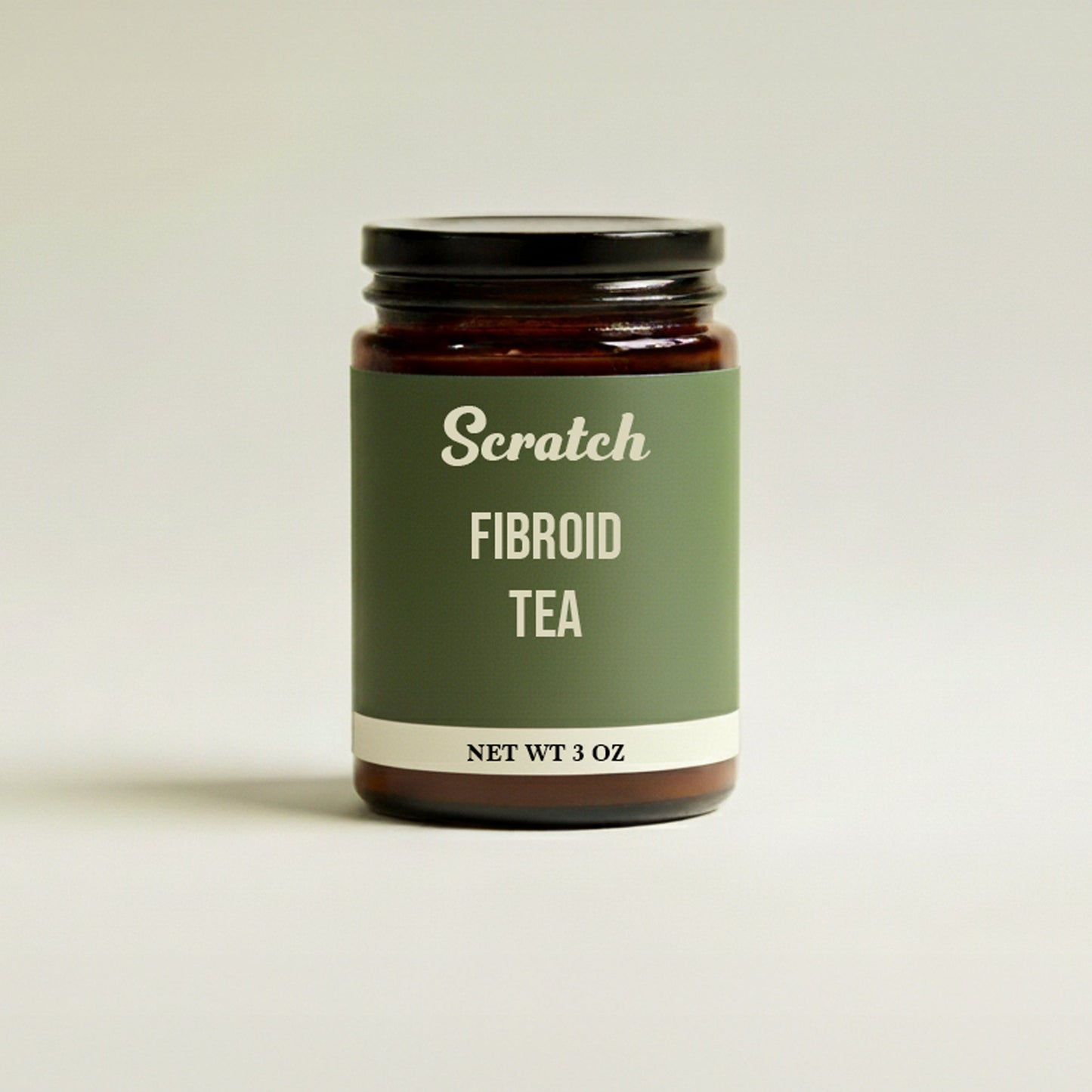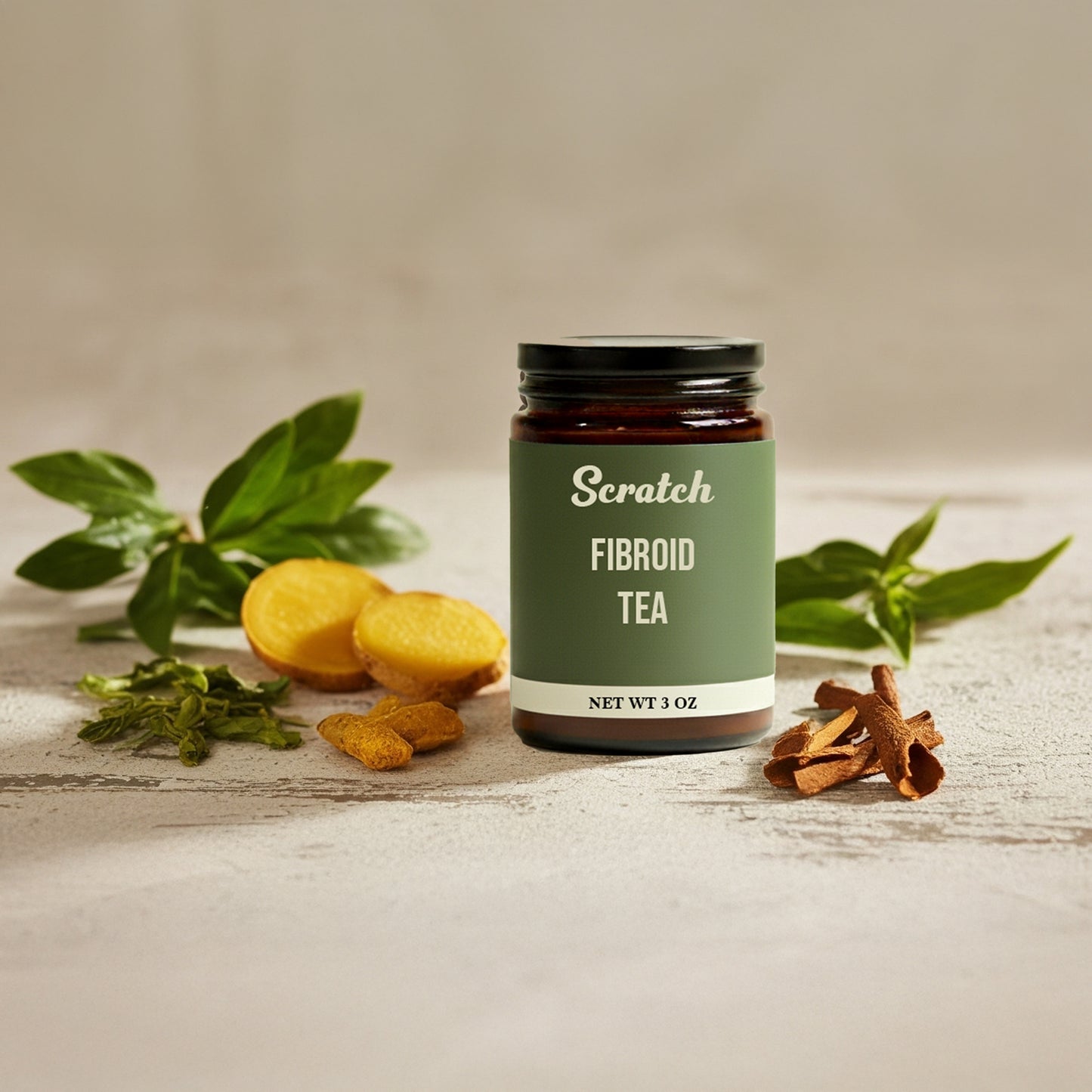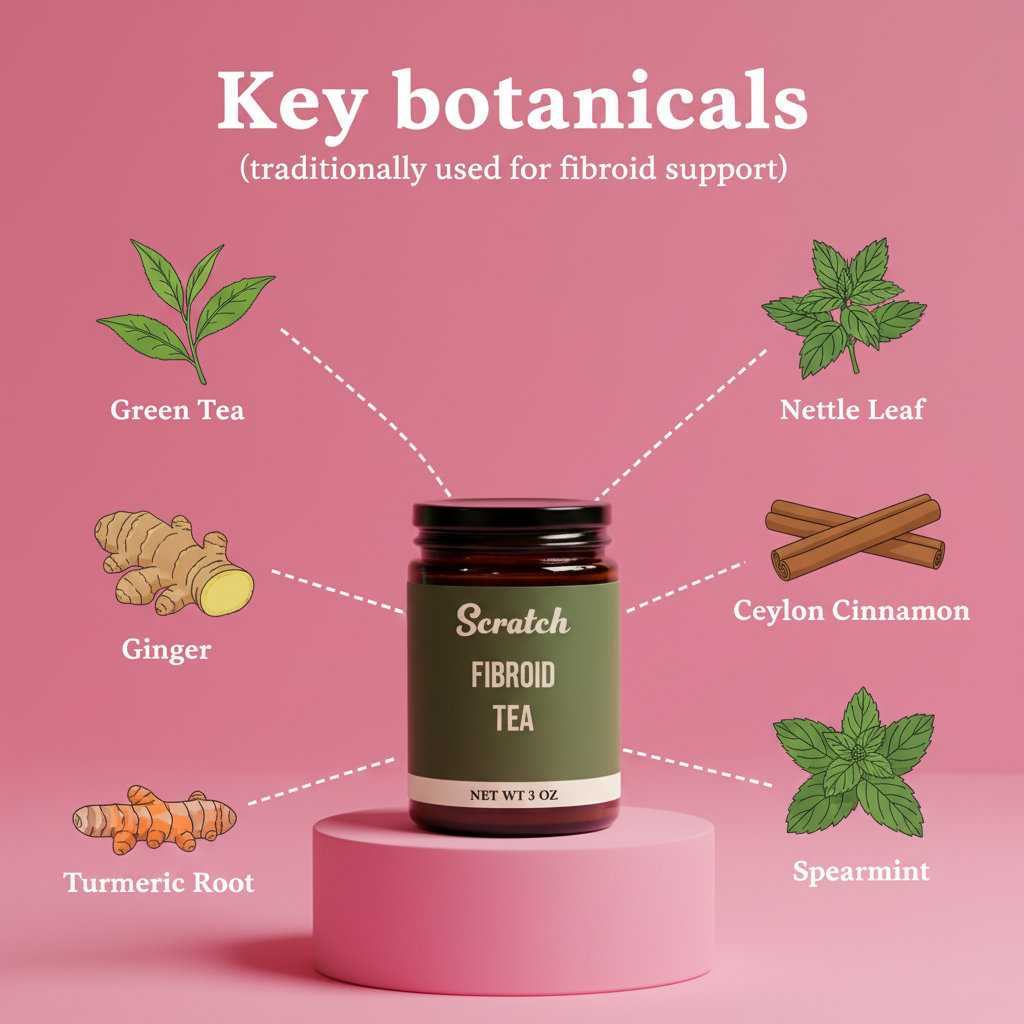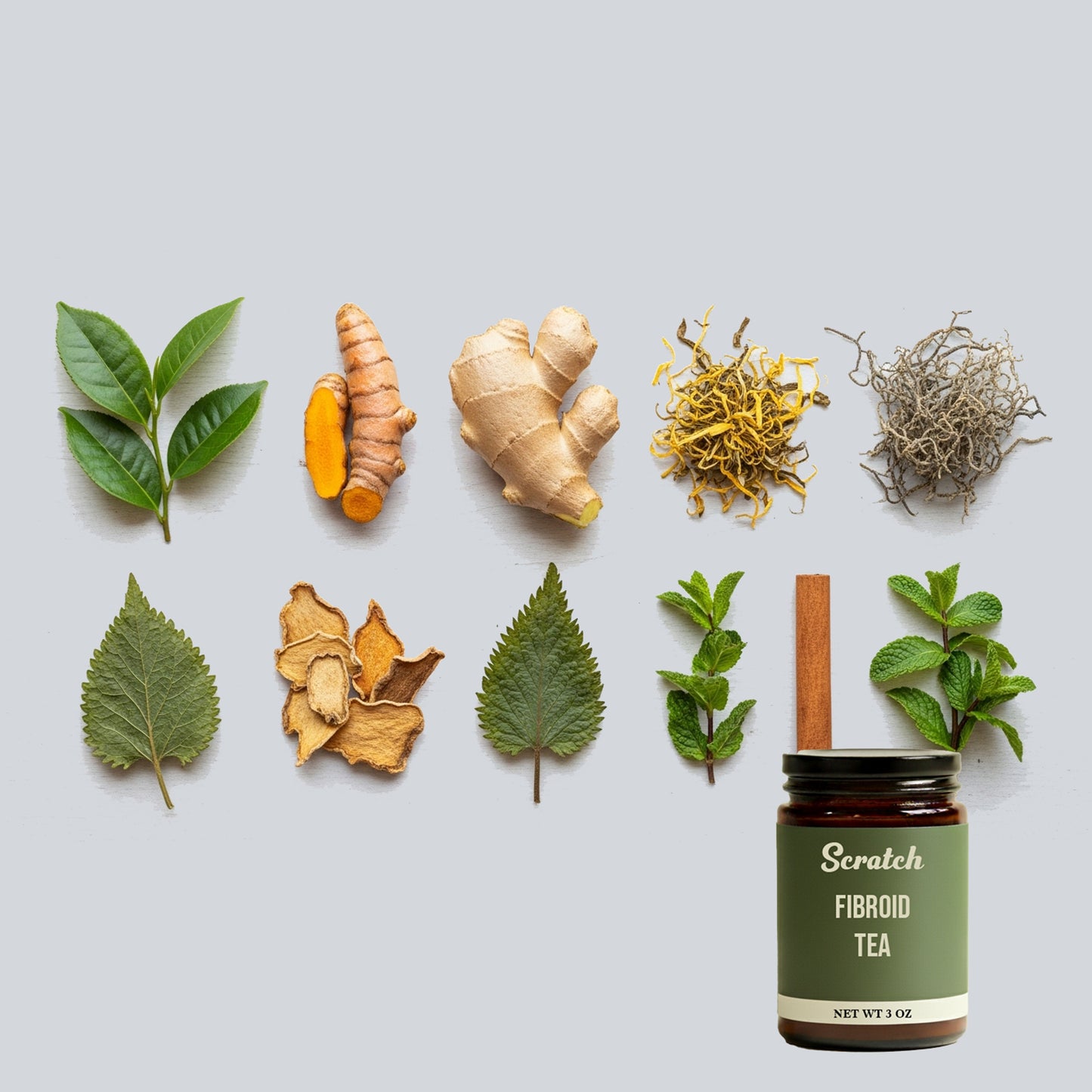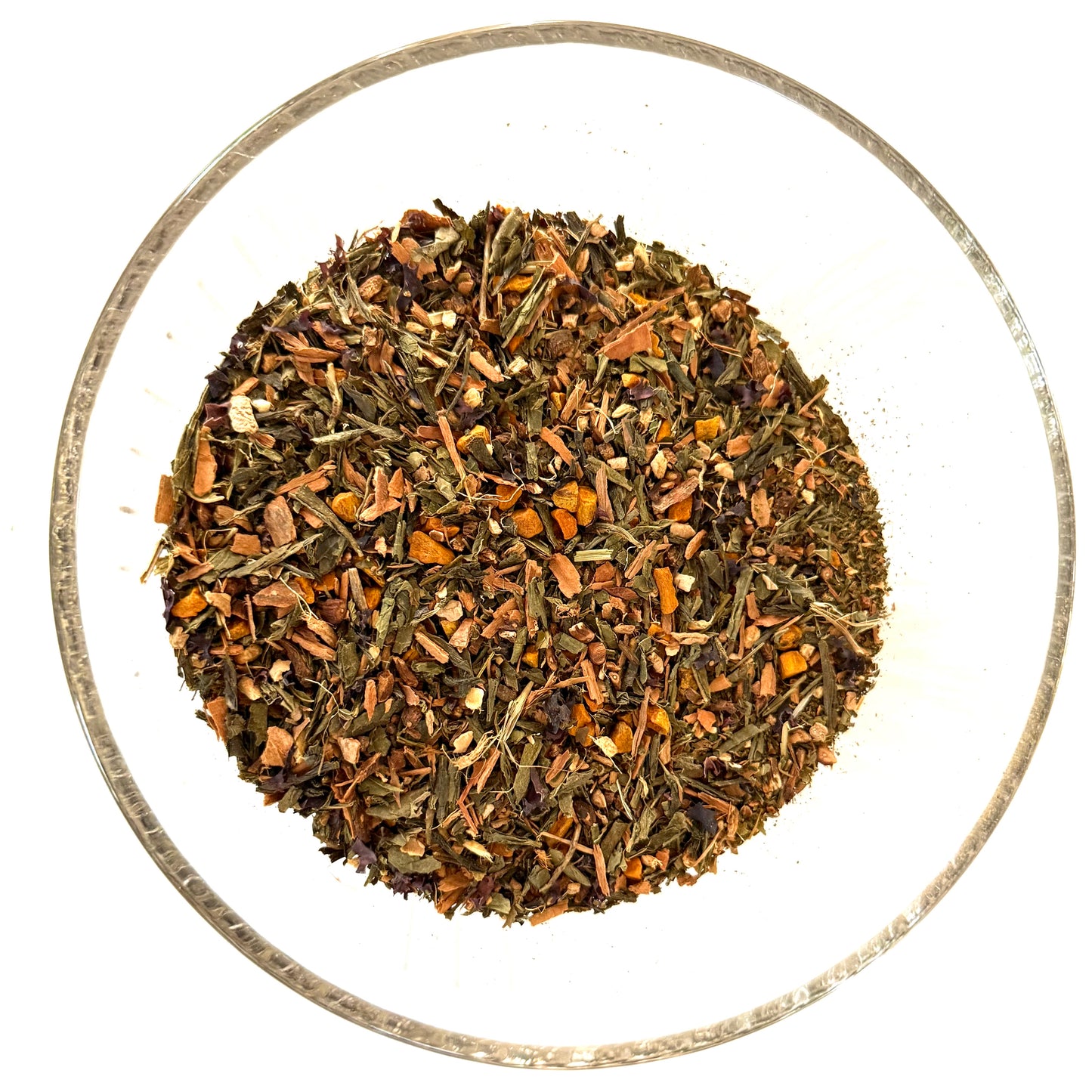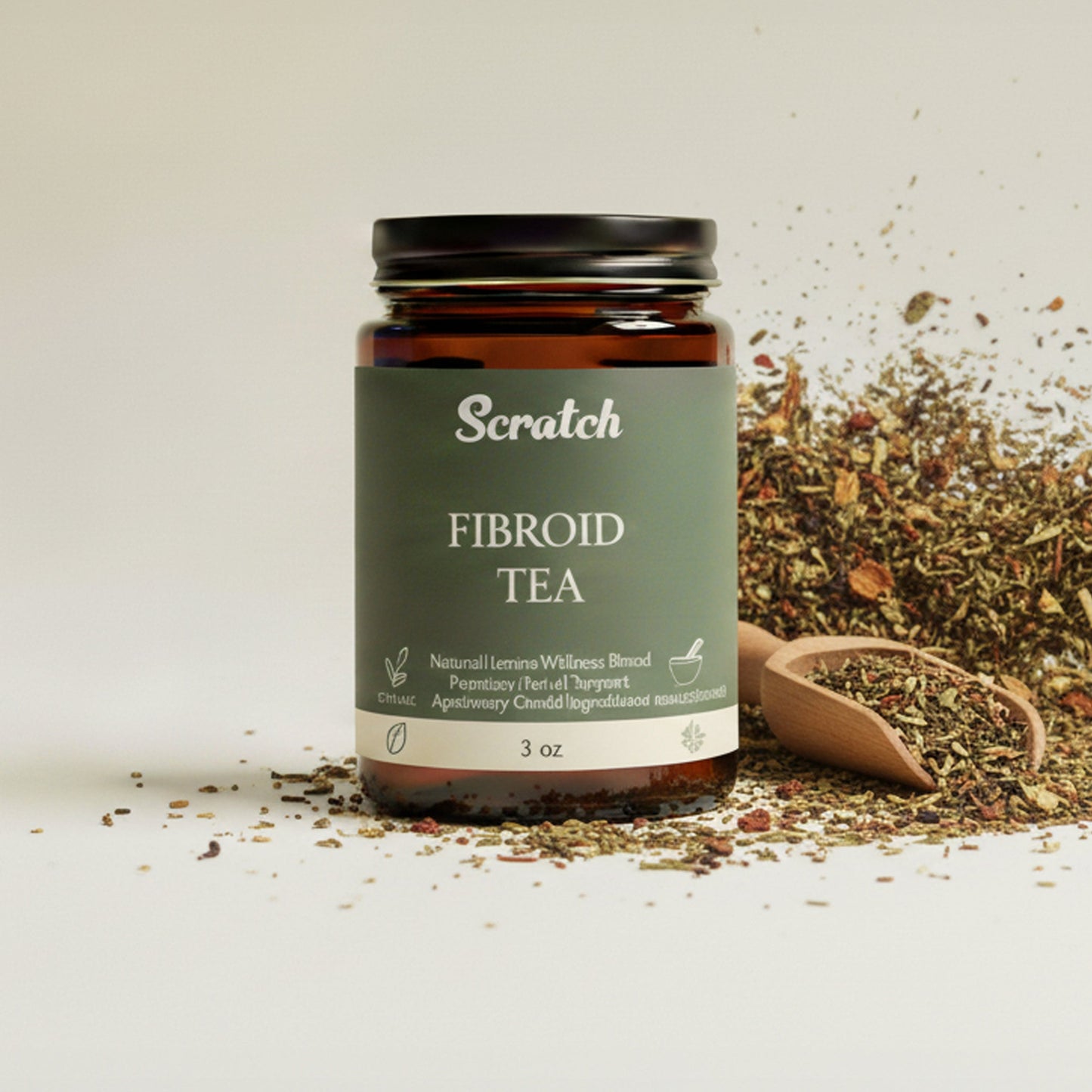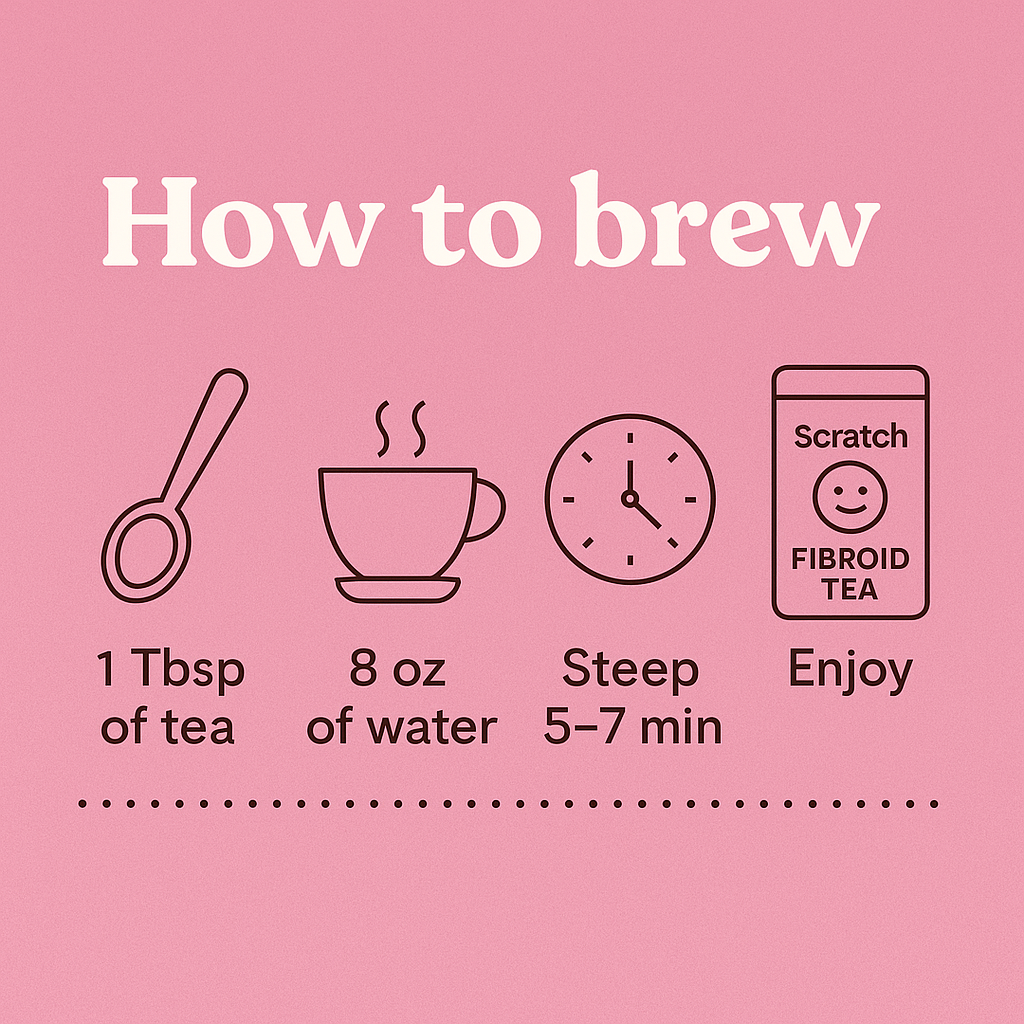Detox and “intestinal cleanse” teas are everywhere promising flatter stomachs, better digestion, and sometimes even claims about shrinking uterine fibroids. If you live with fibroids, it’s understandable to look for natural ways to feel better. Not all teas are created equally and we feel that we have the best fibroid tea product. We also wrote an article on the best herbs for fibroids based on herbs studied by NIH and other respected organizations in relation to fibroids. Many have found help with symptoms with herbs, but we have also included information below on what the medical community says, what to watch for, and additional options to support your health.
Quick refresher: What are uterine fibroids?
Uterine fibroids (leiomyomas) are common, benign growths of muscle tissue in the uterus. They can be as small as a seed or as large as a grapefruit and often occur during the reproductive years. Many people have no symptoms. When symptoms occur, they may include heavy or prolonged menstrual bleeding, pelvic pressure or pain, urinary frequency, constipation, and, less commonly, fertility or pregnancy complications.
Risk factors include family history, age in the 30s and 40s, earlier age at first period, obesity, and African ancestry. Fibroids are driven by hormones (especially estrogen and progesterone) which is why they tend to shrink after menopause.
What is an “intestinal cleanse” tea?
There are a wide variety of cleanses for different uses. Intestinal cleanse products typically combine herbs meant to stimulate bowel movements or increase urine output and common ingredients include:
- Stimulant laxatives: senna (sennosides), cascara sagrada, aloe latex. These trigger the bowel to contract.
- Bulk-forming fiber: psyllium husk, which absorbs water to soften stool and promote regularity.
- Diuretic or bitter herbs: dandelion, burdock, ginger, fennel, and others.
- Green tea or other caffeinated herbs: for mild stimulation and fluid loss.
It is important to note that herbal teas and supplements are regulated differently from prescription and over-the-counter drugs in the United States. The U.S. Food and Drug Administration (FDA) does not review supplements for safety or effectiveness before they are sold, and product quality can vary.
Can cleanse teas shrink fibroids?
There is no high-quality clinical evidence that intestinal cleanse or detox teas prevent, shrink, or treat uterine fibroids. Major professional guidelines (such as the American College of Obstetricians and Gynecologists) do not include cleanse teas as a treatment for fibroids. Because fibroids are hormonally responsive tumors, strategies that affect gut motility or fluid balance are unlikely to change fibroid size. While a high-fiber diet supports overall health and may help ease constipation (a common symptom with fibroids due to pelvic pressure), fiber or laxative teas have not been shown to alter the biology of fibroids. That being said, studies on herbs in relation to conditions are often limited for various reasons so just because a medical studies have not been conducted in mass does not mean herbs are not effective.
Benefits and Risks of Cleanse Teas
What they might help
- Short-term constipation relief: Stimulant laxative herbs such as senna can produce a bowel movement within hours. For occasional constipation, brief use can be effective.
- Bloating related to constipation: More regular bowel movements can reduce a feeling of fullness or pressure.
Risks to consider
- Dehydration and electrolyte imbalance: Frequent loose stools or diuresis can lead to dehydration and loss of potassium (hypokalemia), which may cause weakness, irregular heart rhythms, or worsen certain conditions.
- Cramping and dependence: Stimulant laxatives can cause painful cramps and, with prolonged use, may lead to laxative dependence and worsening constipation when stopped.
- Interactions with medications: Diarrhea can reduce absorption of oral medicines (including birth control pills and iron). Specific herbs may interact with drugs—for example, concentrated green tea extracts have been linked to rare liver problems and may interact with warfarin. Always review ingredients with a clinician or pharmacist.
- Contamination and dosing variability: Because supplements aren’t preapproved by the FDA, some products have been found to contain undeclared ingredients or inconsistent doses.
- Pregnancy and breastfeeding: Many stimulant laxative herbs (cascara, aloe latex) are not recommended. If you’re pregnant or trying to conceive, avoid cleanse products unless your obstetric clinician approves.
- Anemia concerns: People with fibroids often have iron-deficiency anemia from heavy bleeding. Teas that cause diarrhea may worsen iron absorption, making anemia harder to correct.
Safety notes on specific ingredients: the FDA recognizes senna as an over-the-counter laxative for short-term constipation, but ruled that aloe and cascara sagrada are not generally recognized as safe and effective as OTC laxatives. These may still appear in supplements, so read labels carefully.
Additional Ways to Support Gut Health if You Have Fibroids
- Food-first fiber: Aim for 25–30 grams of fiber daily from fruits, vegetables, beans, whole grains, nuts, and seeds. Increase gradually and drink plenty of water to reduce gas and discomfort.
- Hydration: Most adults benefit from 6–8 cups of fluids daily (more with exercise or heat), unless your clinician advises otherwise.
- Movement: Even a daily 20–30 minute walk can stimulate gut motility and ease constipation.
- Evidence-based laxatives when needed: Osmotic agents (polyethylene glycol) and stool softeners can be safer for longer-term use than stimulant laxatives, but check with your clinician, especially if you have heavy bleeding or other conditions.
These strategies address constipation—which can worsen pelvic pressure—without the risks of stimulant cleanse products.
Evidence-based options to manage fibroid symptoms based on the medical community
Your best plan depends on your symptoms, fibroid size/location, fertility goals, and health history. Options include:
- Watchful waiting: If symptoms are mild, monitoring may be appropriate.
- Medicines for bleeding and pain: Nonsteroidal anti-inflammatory drugs (NSAIDs) for cramps; tranexamic acid for heavy periods; combined hormonal contraceptives or a levonorgestrel-releasing IUD to reduce bleeding.
- Hormonal therapies targeting fibroids: GnRH agonists or GnRH antagonists (e.g., elagolix or relugolix combination therapies) can reduce fibroid-related bleeding and shrink fibroids temporarily.
- Procedures: Uterine artery embolization (cuts off fibroid blood supply), myomectomy (surgical removal of fibroids, uterus preserved), hysterectomy (removal of the uterus), or MR-guided focused ultrasound in select cases.
A gynecologist can help tailor options to your priorities, including fertility preservation.
If you still want to try a tea, use a safety checklist
- Talk to your clinician first, especially if you have heavy bleeding, anemia, heart or kidney disease, are pregnant, or take prescription medicines.
- Read the ingredient list: Avoid products with cascara or aloe latex. Be cautious with multi-herb blends.
- Look for quality seals: Third-party testing (USP, NSF, or ConsumerLab) can’t guarantee safety, but it improves the odds that what’s on the label is in the bottle.
- Use short term only: Limit stimulant laxatives to a few days unless your clinician agrees. Stop if you develop diarrhea, severe cramping, dizziness, or palpitations.
- Time your meds: To reduce absorption issues, separate oral medicines and iron supplements from laxative teas by several hours (ask your pharmacist for specifics).
When to seek medical care
- Soaking through a pad or tampon every hour for several hours
- Symptoms of anemia (fatigue, shortness of breath, dizziness, paleness)
- Severe pelvic pain or pressure, urinary retention, or constipation not improving
- Rapid abdominal enlargement
- Pregnancy or trying to conceive and suspect fibroids or bleeding
Bottom line
Intestinal cleanse teas may temporarily relieve constipation, but they do not treat or shrink fibroids. Some ingredients carry real risks—especially with long-term use or in people with heavy bleeding or other medical conditions. For fibroid care, stick with strategies supported by evidence and discuss any supplements with your healthcare professional.
Trusted resources
- American College of Obstetricians and Gynecologists (ACOG): Uterine Fibroids
- NIH National Center for Complementary and Integrative Health (NCCIH): Detoxes and Cleanses
- NCCIH: Senna
- FDA: What You Need to Know About Dietary Supplements
- FDA ruling on certain stimulant laxatives (aloe, cascara)
- NCCIH: Green Tea

